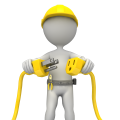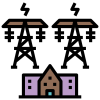Machine Learning Techniques Aktu Quantum– When it comes to state-of-the-art teaching materials, the AKTU Quantum …
We are uploading Quantums and Notes.
Thank You..
You Can Download
Text
B.tech Previous Year Papers: Coming soon
Polytechnic Notes: Coming soon
Polytechnic Previous Year Papers: Coming soon
Important Questions: Coming soon
Medical Notes: Coming soon
Latest Post
MLT Aktu Previous Year Paper– Are you trying to ace your tests by finding MLT …
AKTU Quantum Compiler design is an important subject in the field of Computer Science and …
Previous Year Question Paper– Compiler design is a central topic in the field of computer …
AKTU OS PYQ– Operating systems are essential to computer science and engineering fields. They act …
Operating System Handwritten Notes- It is essential for computer science and engineering fields. They serve …






